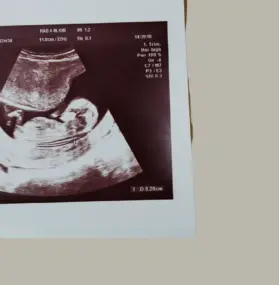- by Carrie Shaw
- on September 9, 2025
“You can’t read the New Testament without seeing the call to holiness in the Christian life. But that holiness is a work of God’s grace as the Holy Spirit empowers the believer to live a life pleasing to God. New Testament holiness is a joyous privilege, not a heavy burden and duty.
New Testament holiness enhances life, it never diminishes it. This is what Jesus modelled so well and it’s why genuine seekers of God were drawn to him. Simply put, he was attractive.
He didn’t just do holiness, he was holy. Yet no one had more life and everywhere he went, dead things came to life.
New Testament holiness is a mark of real life, the one that Jesus rose again to give us. It’s Jesus living in and through us.” | Lance Ralston
“In him was life, and that life was the light of all mankind.” | John 1:4, NIV
While it’s true that repentance – a change of mind – is absolutely a factor in deciding to follow Jesus, repentance is not just a sudden and miraculous renovation of our previously bad life. Jesus didn’t come to make bad people good but to make dead people alive.
Christianity isn’t about behaviour modification (although getting to truly know Jesus will inevitably result in our behaviours changing) but about life being breathed into dead things.
People who were spiritually dead, dead in the most significant way there is to be dead, are reanimated and resurrected by the same power that raised Jesus from the dead; given a new identity, a new purpose, and a new hope.
The holiness that develops and grows in someone who has decided to follow Jesus is a work of the Holy Spirit, as their hearts become convicted by the things that need to change in their life. It’s not as a result of ‘modifying and conforming to acceptable Christian behaviours’ (outward conformity) but because of an inner conviction of the heart, as the flourishing life of God takes root and begins to grow in them.
In the same way that light causes natural things to grow, the light of Jesus will cause growth and flourishing in our lives. This holiness is a joy, not a burden, a mark of the real life that we were always intended to live.
Repentance isn’t a one-time act, then, but an ongoing process, a conscious decision to turn from darkness and begin walking in light. But this doesn’t happen instantly and it doesn’t happen without opposition and difficulty.
Paul the Apostle likens it to a war constantly being waged within us:
“I have discovered this principle of life—that when I want to do what is right, I inevitably do what is wrong. I love God’s law with all my heart. But there is another power within me that is at war with my mind. This power makes me a slave to the sin that is still within me. Oh, what a miserable person I am! Who will free me from this life that is dominated by sin and death? Thank God! The answer is in Jesus Christ our Lord.” | Romans 7:21-25, NLT
Christianity is primarily a choice to enter into a relationship with God, not simply a ritual or a religious code of ethics. It’s living in communion with the Father and His Son and allowing ourselves to be led by the Holy Spirit in each decision we make in our lives. It’s living in freedom from the power that sin and death formerly had over us, even though that power continues to clamor for our attention and tries to convince us that the old way was better.
Christianity is about the reality that we are saved (justification), we are being saved (sanctification), and we will be saved (glorification). It’s a process, not a one-time event, and it’s a lot messier in our own life – and in other’s lives – than we are likely to be comfortable with.
But we are not without help, and we know that our help comes from One who has already won the battle. If we continue to put our trust and confidence in Jesus, there is nothing that will come against us that he hasn’t already defeated and over which we will not prevail.
It’s a lifetime journey, ‘a long obedience in the same direction’ (Eugene Peterson), which sometimes we’ll get right and many times we’ll get wrong.
We are people who, as Paul the Apostle comments, were once dead in our sins but are now being made alive in Christ.
What Does This Mean Practically?
The great commission given to all believers – go into the world and make disciples – was an imperative to make followers of Jesus; to collaborate in the great mission of God of bringing dead people back to life.
In the original language of the New Testament, the word disciple is translated from a Greek word, mathētēs (μαθητὴς), from manthano, meaning “to learn”. Mathētēs therefore means (unsurprisingly) a learner, a pupil or a scholar.
More accurately though, it means to be a learner in the style of an apprentice, that is, someone who not only accepts the views of their teacher but is also practicing the same to eventually become like their teacher (Matthew 10:24, Luke 6:40), an accurate replica of the original.
Catch a couple of keywords there?
Learning. Practicing. Apprenticing. An accurate replica.
The Christian life takes time, and learning, and failure, and practice, and repetition. It’s a process that is moving us from dead to fully alive, from looking and being nothing like Jesus to being an accurate and true replica of the original. And it’s all done in partnership with the Holy Spirit, Who has taken up residence in our life, Who leads us and convicts us in all truth, and Who has been given to us as a seal and a promise of God’s intention to complete the good thing He has begun in us.
What this means practically is that we need to have courage, be kind, and get more specific.
Have Courage
Sometimes it can feel like choosing the Christian life is signing up for one seriously long slog through endless trenches of mud. We tell ourselves, it’s going to take back-breaking work, deprivation, difficulty, and desperation. Nevertheless, we steel our nerves, clench our knuckles, and resolve to get on with the work ahead.
If we approach the Christian life as a sole endeavour, viewing its success as entirely down to our own merits and strengths, we will inevitably fail. Remember what Paul had said: “there is another power within me that is at war with my mind. When I want to do what is right, I inevitably do what is wrong.” Left to ourselves, we’ll get it hopelessly wrong, every. single. time.
But while the Christian life certainly won’t insulate believers from hard times or difficult situations, the most important factor before taking that first step is to know and understand that we are not doing it alone.
It’s not down to our own willpower, strength, or capacity. And I’m not talking about being part of a local church, although that’s a vitally important aspect of Christian life. I’m talking about being in a partnership with the Holy Spirit, allowing the Holy Spirit into our lives to do the work He is meant to do.
The Spirit dwells inside every true Christian and the evidence of the result of His work is “love, joy, peace, patience, kindness, goodness, faithfulness, gentleness and self-control” (Galatians 5:22). The same power that raised Jesus from the dead is constantly at work in us, convicting us, guiding us, comforting us, leading us, renewing us, and changing us so that we are becoming more and more like the One we’ve chosen to follow.
But it’s a partnership, not a dictatorship. We need to allow Him to do this work.
Sometimes the biggest step in our Christian journey is to decide not to try to control more, but actively choosing to relinquish control, to surrender our will to God and allow Him to change us. He’s more than willing, He wants us to succeed, and He’s provided everything we need to be more than conquerors.
Have courage. The battle is the Lord’s – all you need to do is wear the armour He’s given you.
“Finally, be strong in the Lord and in His mighty power. Put on the full armor of God, so that you can take your stand against the devil’s schemes. For our struggle is not against flesh and blood, but against the rulers, against the authorities, against the powers of this dark world and against the spiritual forces of evil in the heavenly realms.
Therefore put on the full armor of God, so that when the day of evil comes, you may be able to stand your ground, and after you have done everything, to stand. Stand firm then, with the belt of truth buckled around your waist, with the breastplate of righteousness in place, and with your feet fitted with the readiness that comes from the gospel of peace. In addition to all this, take up the shield of faith, with which you can extinguish all the flaming arrows of the evil one. Take the helmet of salvation and the sword of the Spirit, which is the word of God.” | Ephesians 6:10-18
Be Kind
We’re all at different points in our spiritual journey. Some are just beginning; with a lifetime of regret they’ve chosen to lay at Jesus’ feet. They have all the enthusiasm of a newborn calf, trying to run on wobbly, newly unfurled legs, yet none of the finesse and experience of seasoned Christian life. They’re still holding tightly to things from their old life, craving the comfort and familiarity of the things they’re used to, even though they know in their heart these things are burdens that need to be set down. For sure, they’re going to mess up. We know this because everyone does, no matter how well-intentioned a person starts out.
Some may hit the ground running – no newborn stumbles for them, but, like in the parable of the sower and the seed, difficulty strikes, hardships appear and their faith suddenly begins to waver. The heat of desert seasons becomes all too much and they’re in danger of throwing it all in.
Others start out more steadily, less forest-fire blaze and more home-fire burning. They grow in faith but, as time passes, they also grow attached to spiritual performance. They begin to major in minors and become drawn into extremes in a misguided zeal for religious purity. They begin to employ the use of ‘formulas’ and ‘doctrines’, pressing good people of faith into conformity with systems, and setting up rigid religious and social guidelines for themselves and other believers. Their faith has metastasized, becoming toxic and destructive, a kind of spirituality that slowly imprisons the mind and poisons the soul.
All these people (ourselves included somewhere in the mix) are people that Jesus died for. Our first action, always, when trying to ‘build each other up in our most holy faith’ is to remember who these people are.
There are few truly evil people in our churches (although, there are some and we need to be aware of that reality) and a great deal more only-human people, who struggle with what it is to be human, with all our emotions, fears, doubts, mistakes, and joy.
While, as Paul the Apostle says, this doesn’t mean we should continue in sin that grace may abound – on the contrary, we continually encourage and preach the necessity of turning from the old life and pressing forward in the new – our encouragement, teaching, counsel, and reproof to one another needs to be wrapped by kindness, the same kind of loving kindness that God has shown to us, and which led to our repentance.
“And pray in the Spirit on all occasions with all kinds of prayers and requests. With this in mind, be alert and always keep on praying for all the Lord’s people.“But you, dear friends, must build each other up in your most holy faith, pray in the power of the Holy Spirit, and await the mercy of our Lord Jesus Christ, who will bring you eternal life.
In this way, you will keep yourselves safe in God’s love. And you must show mercy to those whose faith is wavering. Rescue others by snatching them from the flames of judgment. Show mercy to still others, but do so with great caution, hating the sins that contaminate their lives.” | Jude 1:20-22, NLT
Get More Specific
Jesus wasn’t just a great teacher, an inspirational leader, or a good person.
He was the One and Only Son of God. The Word, who took on humanity and dwelt among us.
He came into the world to save the world from the consequences of sin. He came to overthrow death. He came to vanquish the enemy of all things true, and just, and right. In his own words, he came so that we might have life and have it in abundance.
Knowing this, we need to get more specific about what it is that God is doing in and through us, right now in our little corner of the world. He’s in the resurrection business, busy making all things new and He’s invited us to participate in that mission, to bring that light and life to others.
The kind of Christianity we live and demonstrate isn’t about adhering to strict religious ethics or morals, convincing others about the rightness of our doctrines, advancing a particular denominational brand or flavour, or showing a pseudo kind of holiness we wear like a badge. It’s about living the real life that Jesus came to give us, a resurrection life that brings healing, transformation, flourishing, and genuine holiness.
The question, then, isn’t what should we be doing? (or not doing) but what is life-giving? Is what I’m choosing, promoting, or advancing flowing from that flourishing, resurrection life that Jesus came to give us? Does what I do and say enhance life, bring freedom, initiate transformation, and cause holiness to develop in myself and others?
Are we becoming more and more like Jesus, an accurate and true replica of the original?
Let’s get more specific and remember: we’re in the resurrection business.
Let’s continually point to Jesus, the light and life of the world, the one who has made it all possible. He didn’t just do holiness, he was holy. And yet no one had more life and everywhere he went, dead things came to life. That’s the kind of Christianity we want to have too.
“God the Father knew you and chose you long ago, and His Spirit has made you holy. As a result, you have obeyed Him and have been cleansed by the blood of Jesus Christ. May God give you more and more grace and peace. All praise to God, the Father of our Lord Jesus Christ. It is by His great mercy that we have been born again, because God raised Jesus Christ from the dead.
Now we live with great expectation, and we have a priceless inheritance—an inheritance that is kept in heaven for you, pure and undefiled, beyond the reach of change and decay. And through your faith, God is protecting you by His power until you receive this salvation, which is ready to be revealed on the last day for all to see.” | 1 Peter 1: 2-5, NLT






